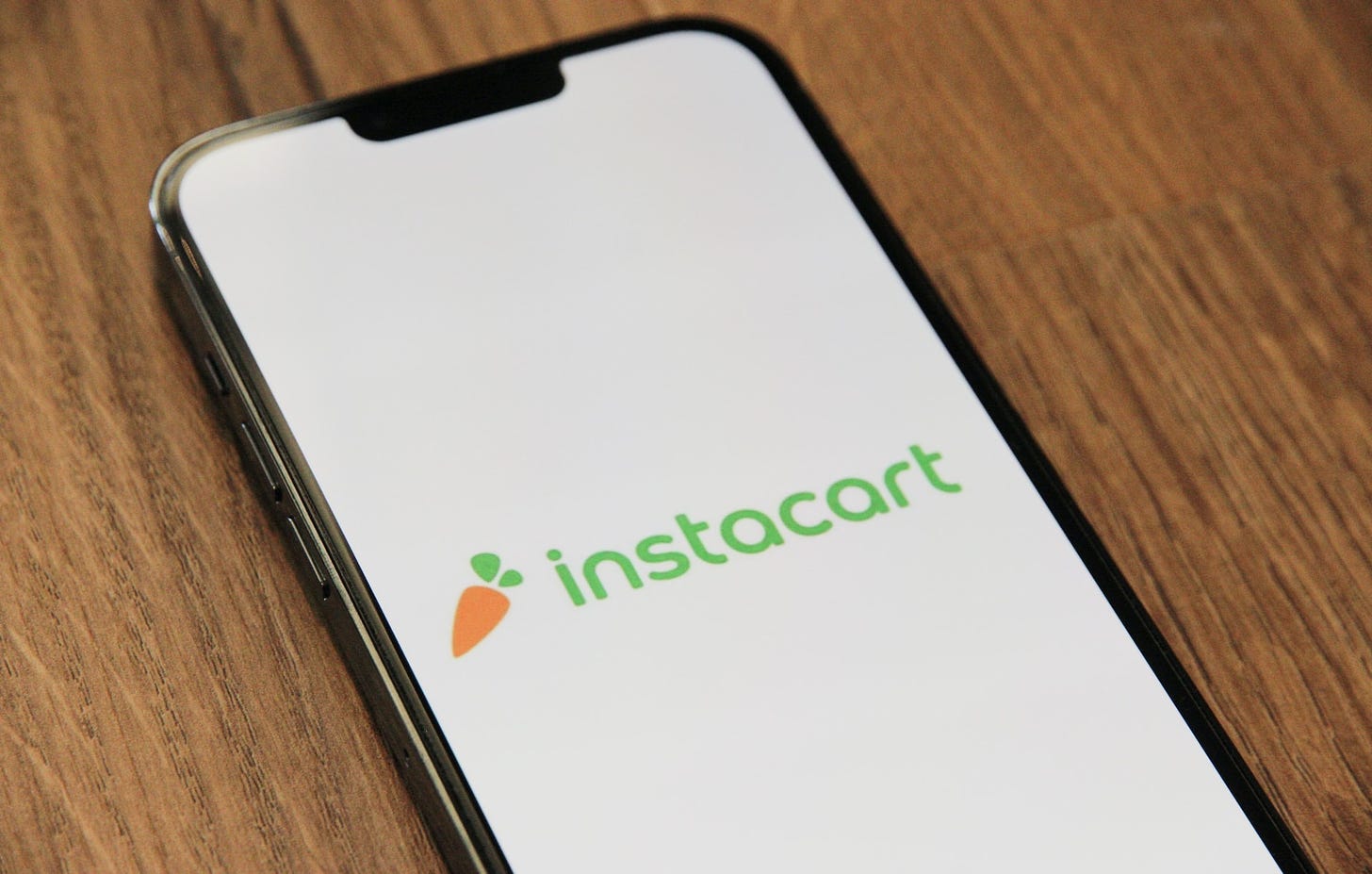

The gig economy may be growing stronger if Instacart shoppers have anything to do with it. Engadget reports that 15 staffers at Mariano’s in Skokie, Illinois (a Chicago suburb) voted to unionize through their local branch of United Food and Commercial Workers—the first time ever that an online grocery delivery company has done this. Pending certification by the National Labor Relations Board, Mariano’s confirmed it will honor the election results.
When Instacart went from profitable to problematic
In an ideal world, this independent contracting job could work for everyone—from students to stay-at-home parents to full-timers who want a few extra dollars in their pockets.
Full-service shoppers collect and deliver orders with their own cars during the schedule of their choosing. In-store shoppers don’t need a vehicle and can work a flexible schedule solely shopping in stores.
And when shoppers gain a loyal base, then what was once side money can become regular, steady income. That is, if Instacart didn’t keep changing its contracting practices.
For four consecutive years, Instacart gig workers have temporarily boycotted the company regarding pay-related concerns. A few major issues that they’ve protested about are the 5% versus 10% default tip change and elimination of the $3 “quality bonus” for five-star ratings.
ADVERTISEMENT ~ Amazon
As an Amazon affiliate, I earn a percentage from purchases with my referral links. I know some consumers are choosing to boycott Amazon for its DEI removal. However, after thinking about this thoroughly, I want to continue promoting cool products from small businesses, women-owned businesses and (specifically) Black-owned businesses who still feature their items on Amazon. As of the first date of Black History Month 2025, each new post will ALWAYS include a MINIMUM of one product sold by a Black-owned business. (I have visited the seller’s official site to verify that Amazon Black-owned logo.) I am (slowly) doing this with older, popular posts too. If you still choose to boycott, I 100% respect that decision.

Then there’s the matter of whether gas, maintenance and taxes are worth the job. In one example, a five-year shopper agreed to deliver 501 cans of soup from Costco.
The total was $20.88. But under the old payment system (with a higher base fee, less service charges and a higher tip function), he believed he would’ve made almost triple that amount at a guesstimated $75.
Instacart shoppers have been pretty vocal regarding these financial changes, boycotting and publishing their thoughts online. A Medium post was written, naming 628 corporate Instacart employees found on LinkedIn, with guilt-ridden statements after their names. However, it was later removed without explanation.
How Instacart gig workers can get the upper hand
With the help of a union, the gig workers could have more organized power regarding worker conditions.
And it’s not just these 15 who can do it. According to Engadget, 12,000 of the guesstimated 142,000 Instacart shoppers are also employees who can unionize. While other gig workers have not been as successful at unionizing (i.e. Google, Lyft, Uber), if all goes well, this could show other gig workers that it’s indeed possible to do.
Creating a union-based program could change the dynamics of the gig economy. Whereas gig-related jobs tend to have spontaneous turnovers and next to no loyalty to a company, creating a program that protects the workers will more than likely make gig workers want to stay put.
And considering there were some customers who participated in the boycotts when their regular shoppers logged off, ignoring gig workers’ requests could cost the company money, too. #DeleteInstacart and #BoycottInstacart movements didn’t just revolve around gig workers. Customers, activists and even a legislator (Lorena Gonzalez, the Chair of California’s Assembly Appropriations Committee) got involved.
Of course, an online grocery delivery company’s union may not be a big deal to everybody. Only 3% of American grocers purchase their groceries online. But that still speaks volumes, considering 42% of first-time users confirm that online grocery shopping saves time and gets easier the more often it’s done.
Then there are customers who rely on shoppers to get their groceries, including those who are physically disabled, seniors who may not have immediate family members to regularly shop for them, people who don’t have reliable transportation, other workers who have jobs that require them to stay put (ex. caregivers) or people who simply don’t want to hang out in a grocery store. Grocery delivery is the one thing that users can check off their list as easily as picking a few items at home and confirming payment.
Using these gig shoppers can also be a time-saver for customers who don’t want to bounce from store to store. Well-known companies use Instacart, such as Aldi, CVS Pharmacy, Food4Less, Sam’s Club, Petco, Binny’s and more. So when shoppers are unhappy and drop out of the program, this can leave customers unhappy, big-name stores unhappy and in turn, the online grocery company unhappy, too.
If this union agreement goes through at Mariano’s (and potentially beyond the small Skokie team), this will be one step further in showing the evolution of gig work in a tech-dominant world.
(Note: This post was originally published as an Upwork freelancer for RETHINK Retail.)
Did you enjoy this post? You’re also welcome to check out my Substack columns “Black Girl In a Doggone World,” “BlackTechLogy,” “Homegrown Tales,” “I Do See Color,” “One Black Woman’s Vote” and “Window Shopping” too. Subscribe to this newsletter for the monthly post on the third Thursday.
If you’re not ready to subscribe but want to support my writing, you’re welcome to tip me for this post! I’ll buy a dark hot chocolate on you. Thanks for reading!










